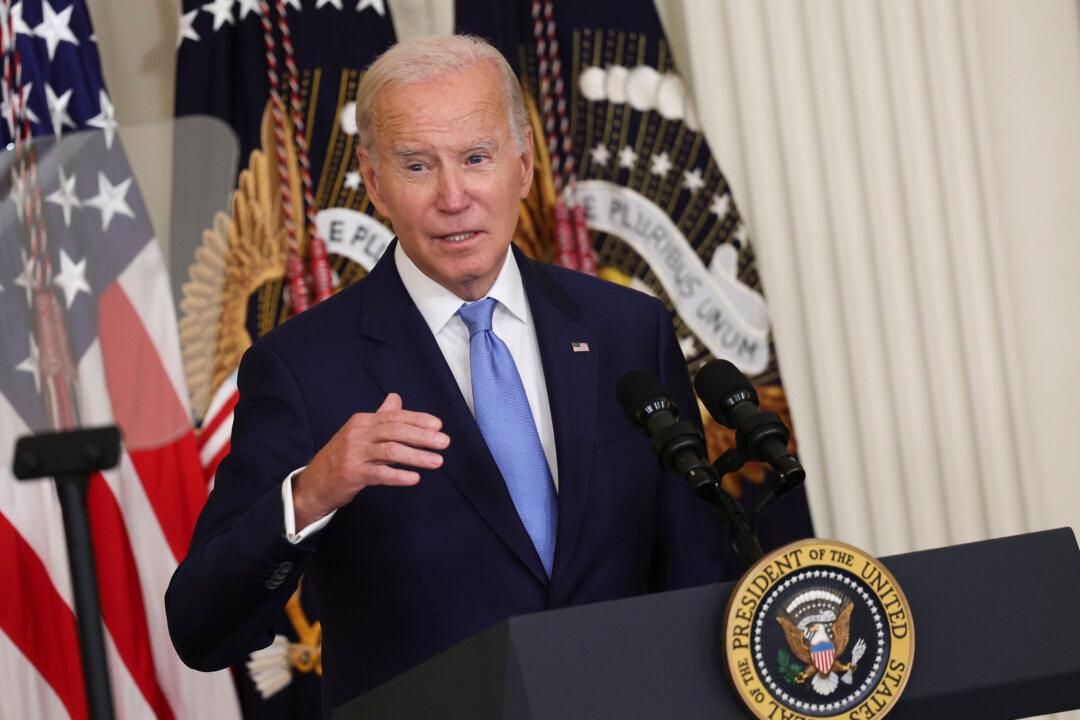President Joe Biden downplayed the cost-of-living crisis that’s squeezing American households, arguing in a recent interview on CBS’s “60 Minutes” that inflation over the past several months “hasn’t spiked” and that the monthly rate of inflation was negligible.
Biden made the remarks in response to a question about soaring inflation posed by CBS’s Scott Pelley, who noted that the most recent Consumer Price Index (CPI) came in at an annual 8.3 percent and that Americans are “shocked by their grocery bills.”





